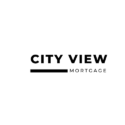Las Vegas Conventional Home Mortgage
Conventional Home Loan
Know exactly what you can afford before you start searching for a home.
How does a conventional loan work?
In summary, a conventional mortgage is not provided by the government- it’s offered and accepted through the private sector. This type of mortgage accounts for a lot of purchases and refinance, and can be requested through diverse mortgage lenders, such as banks, credit unions, or online.
By contrast, government-insured loans are secured by a government agency and include options such as FHA loans, VA loans and USDA loans.
Conventional loans are either fixed-rate or adjustable-rate. A fixed-rate mortgage has a set, unchanging interest rate whereas an adjustable-rate mortgage fluctuates at predetermined intervals (e.g. yearly or biyearly) based on the index rate and margin set by the lender.
What Is Needed For A Conventional Loan?
To get a mortgage approved, you need to meet the lender’s requirements which involve your credit score, debt level, income and more. Generally speaking, conventional loan requirements are stricter than those of government-backed loans.
1. FICO & Credit Score
The first step is your check and assess your credit score. The minimum score mortgage lenders require to qualify for a conventional loan is generally 620, but the best loan products and lowest interest rates could require a much higher score, usually 740 and up.
2. Debt-to-income (DTI) ratio
A lender will examine is your debt-to-income ratio (DTI). This includes other debts that you need to pay off each month, like auto loans, student loans and credit card debt. Most lenders don’t want this percentage to go beyond 43, but some may make allowances for up to 50 percent. Then, there are others that might reduce it all the way down to 36.
3. Cash Down
While certain government-insured loans may cover a full home purchase price, conventional loans require down payments of at least 3 – 5 percent. For example, if you are obtaining a 3-percent conventional loan to purchase a house that costs $350,000, then you would need to come up with at least $10,500 in down payment.
4. Private mortgage insurance
Conventional mortgages allow you to put down a small amount of money, such as 3 percent. However, this comes with a cost: private mortgage insurance (PMI). This is the
5. Size of loan
The last step in the application process for a traditional loan is determining how much to borrow. The Federal Housing Finance Agency (FHFA) establishes limits each year for conforming normal loans that modify depending on where the real estate is situated. Anything greater than these FHFA limits necessitates a jumbo loan.
FREE Home Loan Pre-Approval
Do you know how much home you can afford? Take the first step by getting pre-approved here for FREE!
